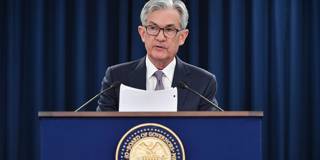Different economic conditions and priorities in the US and the eurozone are leading to divergent macroeconomic-policy approaches. While there is nothing shocking about this, there are potential longer-term effects that should not be underestimated.
BRUSSELS – With Europe finally beginning to catch up to the United States in vaccinating its population, both sides of the Atlantic seem set for a strong economic recovery. But macroeconomic policies are diverging in ways that could create serious problems in the future.
Fiscal policy has already diverged. The US is on course to run a public-sector deficit of around 15% of GDP for two years (2020 and 2021). The scale of next year’s deficit remains to be seen, but bringing it down to single-digit figures would constitute an unprecedented contraction. Add to that President Joe Biden’s proposed $2 trillion American Jobs Plan – which his administration is still negotiating with lawmakers – and it seems highly unlikely that the US fiscal stance will suddenly tighten in 2022.
In the eurozone, governments also ramped up spending during the COVID-19 crisis, but not nearly as much. Expenditure added up to 7-8% of GDP in 2020 and 2021 – no small share, but just half that of the US.

BRUSSELS – With Europe finally beginning to catch up to the United States in vaccinating its population, both sides of the Atlantic seem set for a strong economic recovery. But macroeconomic policies are diverging in ways that could create serious problems in the future.
Fiscal policy has already diverged. The US is on course to run a public-sector deficit of around 15% of GDP for two years (2020 and 2021). The scale of next year’s deficit remains to be seen, but bringing it down to single-digit figures would constitute an unprecedented contraction. Add to that President Joe Biden’s proposed $2 trillion American Jobs Plan – which his administration is still negotiating with lawmakers – and it seems highly unlikely that the US fiscal stance will suddenly tighten in 2022.
In the eurozone, governments also ramped up spending during the COVID-19 crisis, but not nearly as much. Expenditure added up to 7-8% of GDP in 2020 and 2021 – no small share, but just half that of the US.